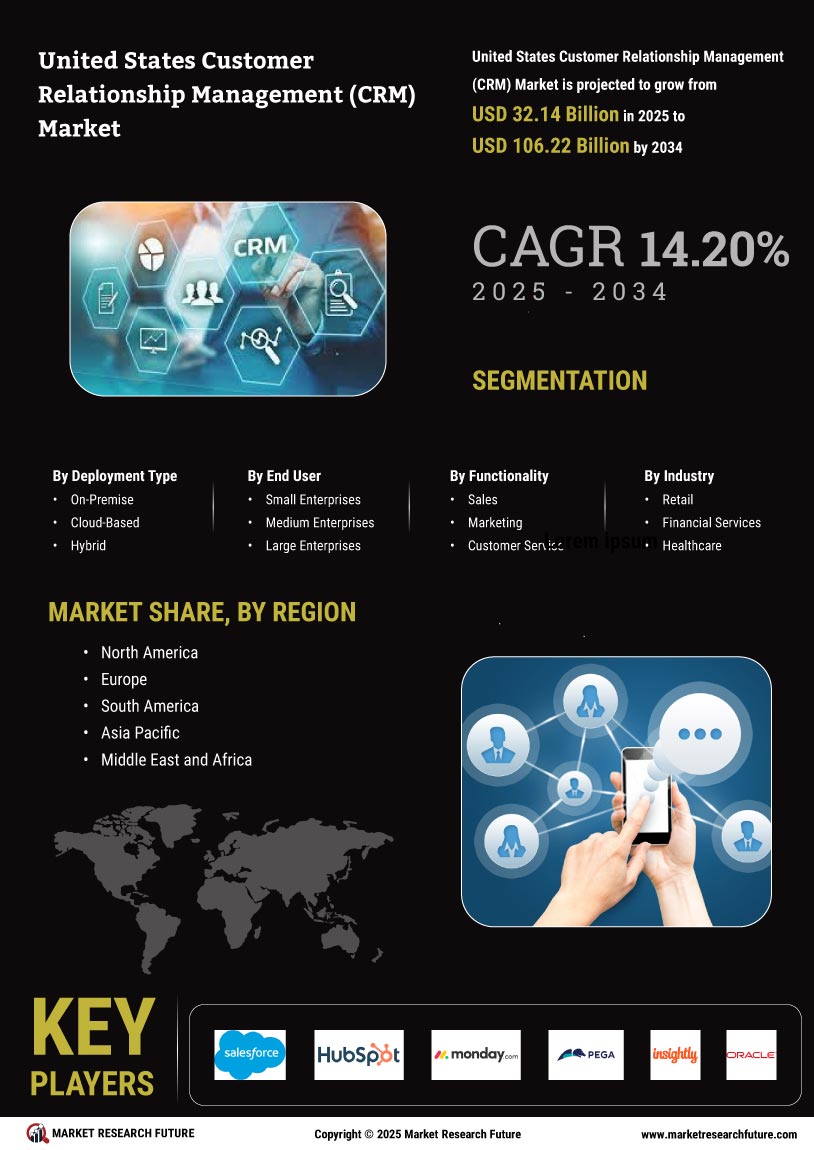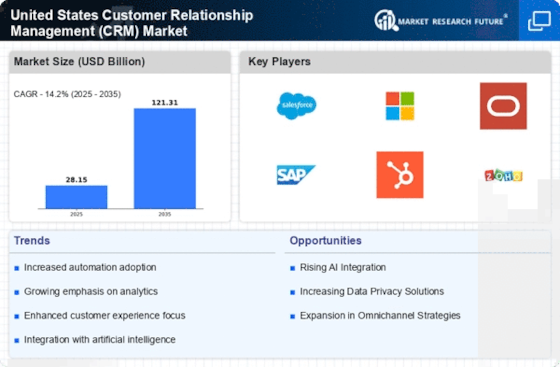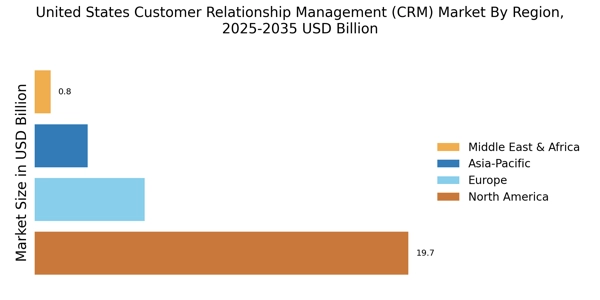Growing Demand for Data-Driven Insights
The US Customer Relationship Management Market is experiencing a notable shift towards data-driven decision-making. Organizations are increasingly leveraging analytics to gain insights into customer behavior, preferences, and trends. This demand for actionable data is driving CRM solutions that integrate advanced analytics capabilities. According to recent statistics, over 70 percent of US companies prioritize data analytics in their CRM strategies. This trend suggests that businesses are recognizing the value of data in enhancing customer interactions and improving overall satisfaction. As a result, CRM providers are focusing on developing tools that facilitate data collection and analysis, thereby enabling organizations to tailor their offerings more effectively. The emphasis on data-driven insights is likely to continue shaping the landscape of the US Customer Relationship Management Market in the coming years.
Shift Towards Cloud-Based CRM Solutions
The US Customer Relationship Management Market is experiencing a significant shift towards cloud-based CRM solutions. This transition is largely driven by the need for flexibility, scalability, and cost-effectiveness. Cloud-based systems allow organizations to access their CRM tools from anywhere, facilitating remote work and collaboration. Recent data suggests that over 80 percent of US businesses are adopting cloud-based CRM solutions, reflecting a growing preference for subscription-based models. This trend indicates that companies are seeking to reduce upfront costs while benefiting from continuous updates and improvements. As cloud technology continues to advance, the US Customer Relationship Management Market is likely to see further growth in cloud-based offerings, enabling businesses to adapt to changing market demands more efficiently.
Integration of Multi-Channel Communication
In the US Customer Relationship Management Market, the integration of multi-channel communication is becoming increasingly vital. Customers today engage with brands through various platforms, including social media, email, and live chat. CRM systems that support seamless communication across these channels are in high demand. This trend is underscored by the fact that approximately 60 percent of US consumers prefer to interact with brands through multiple channels. Consequently, CRM providers are enhancing their solutions to ensure that businesses can manage customer interactions holistically. This integration not only improves customer experience but also allows organizations to maintain a consistent brand voice. As the market evolves, the ability to effectively manage multi-channel communication will likely be a key differentiator for CRM solutions in the US Customer Relationship Management Market.
Increased Regulatory Compliance Requirements
The US Customer Relationship Management Market is increasingly influenced by regulatory compliance requirements. As data privacy concerns grow, businesses must adhere to various regulations, such as the California Consumer Privacy Act (CCPA) and the General Data Protection Regulation (GDPR) for international operations. These regulations necessitate that CRM systems incorporate robust data protection measures and transparency features. Companies that fail to comply may face significant penalties, which underscores the importance of integrating compliance capabilities into CRM solutions. This trend is prompting CRM vendors to enhance their offerings with features that ensure data security and compliance. As regulatory scrutiny intensifies, the ability to navigate compliance challenges will likely become a critical factor for success in the US Customer Relationship Management Market.
Rising Importance of Customer Experience Management
The US Customer Relationship Management Market is witnessing a heightened focus on customer experience management. Companies are increasingly recognizing that exceptional customer experiences are crucial for brand loyalty and retention. Research indicates that organizations prioritizing customer experience are 60 percent more profitable than those that do not. This realization is prompting businesses to invest in CRM solutions that enhance customer interactions and streamline service delivery. As a result, CRM vendors are developing features that allow for personalized customer journeys, real-time feedback collection, and proactive service. The emphasis on customer experience management is expected to drive innovation within the US Customer Relationship Management Market, as companies strive to differentiate themselves in a competitive landscape.

















